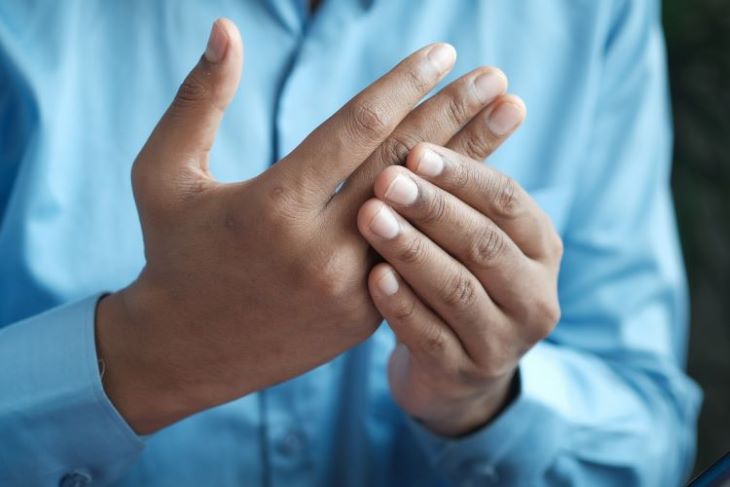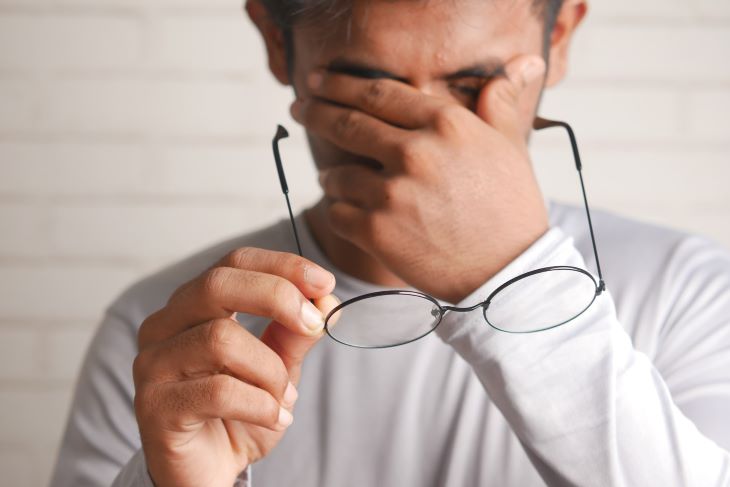The harmful effects that alcohol can have on the body have been well-documented in the medical literature for decades.
Due to technological advances in medical research practices, scientists can accurately identify the specific damage that the toxic chemicals present in alcohol can cause throughout the human body.
The damage causes a range of physical health problems as the chemicals gradually inflict their poisonous content in cells, tissues and organs throughout the body, and weaken several important physical mechanisms that are necessary for optimum human functioning.
The main reason for this is that as well as the liver, most tissues in the human body are extremely efficient at processing alcohol. (4)
The peripheral nervous system

One such health condition among the many that heavy-sustained drinkers are potentially at risk of being diagnosed with is neuropathy, which tends to affect the peripheral nervous system in the human body.
The peripheral nervous system is an intricate network of nerves that link the muscles, skin and vital organs in the body to the spinal cord and the brain which are the central features of the central nervous system.
(Peripheral) Neuropathy

Statistics reveal that peripheral neuropathy is present in approximately 30 to 65% of chronic alcoholics, particularly if they are frequent, heavy and continuous consumers of alcohol.
Like a lot of alcohol-related physical conditions, there tend not to be signs of damage noticeable for several years as the harmful contents of alcohol are slowly absorbed by the body.
The role of the peripheral nervous system is to act as a messenger to transmit information from the brain and spinal cord throughout the body including muscles, glands, organs, the skin, feet, and hands to name but a few.
If the nerves in this system become impaired in any way (for example by prolonged alcohol use) then a disorder known as peripheral neuropathy can develop. (2,5)
Categories of neuropathy

There are 4 types of neuropathies that have been identified, these are:
1. Sensory neuropathy
This affects the sensory nerves that connect to your skin and dictate the degree of your sensitivity of feeling to touch. This relates to how you feel temperature changes and any object or stimulus that comes into contact with your skin.
2. Motor neuropathy
This relates to any damage caused to the nerves which can affect the movement of our bodies as these nerves are responsible for coordinating the movement of all of our limbs.
3. Autonomic nerve neuropathy
This is when the autonomic nerves become damaged, and this can have serious consequences as these nerves are connected to several key organs in the body which regulate the way our heart and respiratory systems operate. (1,6)
4. Combination neuropathies
This is when patients may have combinations of two or even three of the three types of neuropathies mentioned above.
Consequences of peripheral neuropathy

People who are diagnosed with peripheral neuropathy are at risk of:
- Having their usual muscle movement restricted.
- Losing their normal sensation.
- Experiencing pain.
Diagnosing Neuropathy

Medical professionals use the following methods to diagnose neuropathy:
- Conducting a physical exam on the patient.
- Take a detailed medical and personal history (including lifestyle).
- Order a blood test to establish if the thyroid is working at its optimum level.
- A computed tomography procedure (commonly known as CT scan) or MRI scan, can detect if anything else in the body is pressing on the nerve and causing the person discomfort.
How Does High Alcohol Use Damage Our Nerves?

Excessive, long-term alcohol consumption puts a lot of pressure on key organs such as the kidneys and liver and can affect the way the stomach functions.
Eventually, there will be a build-up of toxins in the bloodstream and tissues as the organs that process and flush out alcohol become less effective.
The build-up of toxins can begin to damage the nerves in our body and cause many unpleasant and uncomfortable symptoms. (2,6)
Common Signs of nerve damage/ Neuropathy:
- Numbness/tingling in the hands or feet.
- You may feel like you are wearing a tight glove or a tight sock.
- Consistently dropping any objects you are holding on to.
- You will develop a low pain threshold.
- You will find you have a heightened sensitivity to pressure and touch.
- You may experience sharp pains in your arms and legs.
- Experience a buzzing sensation, similar to receiving a mild electric shock.
- You may feel weakness in some muscles in your legs and experience muscle twitching or tingling in your toes, feet, fingers and arms.
- A lack of sensation in your arms and feet.
- Difficulty sleeping.
- Your balance may become unstable.
- You may begin to have problems with your coordination with your hands, arms and feet and you may find it challenging to walk in a straight line.
- You may not experience any pain after injuries.
- You may be prone to bruises, cuts and infections in arms or feet.
- Bowel difficulties such as constipation or diarrhoea
- Urinary incontinence
- You may begin to feel dizzy/lightheaded
In extreme cases, people may experience:
- Difficulty eating or swallowing.
- A high level of emotional distress and anxiety.
- Breathing may become laboured.
- Erratic cardiac activity and irregular heartbeat.
Every patient with neuropathy may have different symptoms

Some of the above symptoms may contradict each other but all patients diagnosed with neuropathy will experience a different combination of symptoms due to the individual circumstances surrounding their condition.
What is clear is that having neuropathy makes the nerves behave erratically so there is no way of predicting exactly what symptoms anyone one person will experience compared with another.
Risk factors for alcohol-related neuropathy

The likelihood of being diagnosed with neuropathy as a result of long-term, heavy alcohol use is dependent on several risk factors, including:
- Family history of
- The way your biology (determined by your genetics) responds to the toxic properties of alcohol.
- Thiamine deficiency.
Thiamine deficiency

Recent research due to advances in nutritional medicine has identified that a thiamine deficiency (which is very common in people diagnosed with alcoholism) is also capable of making a person more vulnerable to developing neuropathy if they regularly consume high quantities of alcohol.
The presence of ethanol in our bodies tends to reduce the ability of the intestine to absorb thiamine (also known as vitamin B1) which is responsible for cell growth and functioning.
So, losing this key vitamin can lead to nerves in the peripheral system performing less efficiently and becoming more erratic as they are missing out on a key nutrient.
The Peripheral nervous system is not strongly protected

The body is made up of the central nervous system and the peripheral nervous system and the central nervous system has its own protective system in the form of the blood-brain barrier.
The blood-brain barrier can prevent harmful elements from entering the central nervous system and negatively impact brain functioning.
Many parts of the body which suffer from neuropathy are not part of the central nervous system but instead form part of the peripheral nervous system which does not have any designated mechanism to protect it.
Because of this, the peripheral nervous system is vulnerable to the harmful toxic chemicals found in alcohol which break through and damage components of its system (e.g. hands and feet).
Around 15-30% of people with alcohol abuse issues have been diagnosed with peripheral nervous system disorders.
Alcohol-related ataxia

Patients who have developed neuropathy after sustained heavy alcohol use are also vulnerable to their neuropathy contributing to a condition called Ataxia.
This is a condition which leads to poor coordination as a result of significant damage to an area of the brain called the cerebellum. Ataxia is caused by alcohol-induced damage to a large volume of brain cells.
The cerebellum plays a key role in controlling our movement, and patients diagnosed with ataxia have problems with walking in a straight line and may also develop poor posture and become clumsy, suffering frequent falls. (7)
Why does high alcohol intake lead to neuropathy?

Scientists have so far failed to come up with any definitive answers to explain how prolonged alcohol use causes nerve damage but some of the tests they have conducted have revealed the following reasons that may contribute to the condition:
- High alcohol intake may trigger spinal cord microglia which plays a crucial role in the regulation of a person’s sensitivity to pain, but there still remains an air of mystery about all of its significance.
- The chemicals in alcohol cause an increase in oxidative stress which leads to nerve damage.
- The high levels of alcohol present in the body can activate key receptors in the spinal cord, making us more sensitive to pain.
- Activation of the HPA axis, which involves an interaction between the hypothalamus in the brain and the pituitary and adrenal glands plays a role in the stress response and, in the resulting release of cortisol into the bloodstream. Too much cortisol can be harmful to the body and alter many of its internal physical processes. (1)
- Nutritional deficiency – Heavy alcohol intake will eventually take its toll on the body and one of the consequences is that the body will become less efficient at absorbing important nutrients from our diet, which include B12 and protein.
Because of the decline in available protein, the body is forced to prioritise which organs, mechanisms and tissues obtain the nutrients.
This results in the less vital parts of our body, such as hands and feet which are far away from the heart, liver and kidneys being denied these nutrients.
The consequences of this are that the nerves in these areas decline and begin to behave erratically. (1)
Treatment of alcoholic neuropathy

Depending on the severity of the condition the only option available for medical practitioners is to prevent further damage.
This is why obtaining an early diagnosis is key for identifying the condition and providing the patient with support and care so that they can retain their current quality of life.
It is highly unlikely that the neuropathy will improve and that the patient will return to normal.
Learning several pain management strategies may help to improve their condition although patients may have to make several lifestyle adjustments to achieve this.
Preventing further damage

The main way to halt further damage is to help the patients abstain from alcohol as soon as possible or the condition may worsen.
At this stage, everything should be coordinated to help the patient join an alcohol rehab program where they can receive specialist treatment to help them give up drinking.
People diagnosed with alcoholism are highly likely to have poor nutritional intake which also significantly contributes to neuropathy.
So, the early interventions for patients who have alcohol-induced neuropathy would first be to limit, (or preferably stop) their alcohol intake.
Secondly, medical practitioners should stress the importance of improving the nutritional quality of the patient’s diet to ensure they get the nutrients, vitamins and minerals they require, especially vitamins B and B1. (1,7)
Other treatment options

There are also several other treatment options available to patients, including:
1. Medication
There is pain-relieving medication available which can make the condition more manageable, this includes over-the-counter medicines such as non-steroidal anti-inflammatory drugs which are suitable for patients who experience mild symptoms.
Examples of this medication include aspirin and ibuprofen. (7)
There are also more powerful opioid-based drugs available which will need to be prescribed by a doctor, including tramadol and oxycodone.
However, these drugs can lead to drug dependency if not prescribed and managed carefully by your doctor who will review your condition and personal situation before developing a suitable plan to meet your needs.
2. Anti-seizure medication
Several anti-seizure medications such as gabapentin and pregabalin that are used to treat patients with epilepsy contain properties that can alleviate nerve pain.
However, this option must be considered carefully as there are accompanying side effects such as drowsiness and dizziness. (5,7)
3. Topical Treatments
An example of this would be capsaicin cream which contains elements found in chillies as this has been found to decrease the severity of symptoms associated with neuropathy.
The cream can limit the amount of pain-transmitting chemicals apparent in the nerve cells in the painful area. The cream can produce a very unpleasant burning feeling which some patients find difficult to bear. (8)
The capsaicin is gradually absorbed by nerve cells and carried to the spinal cord which can reduce the volume of several pain-transmitting chemicals that are transported to the brain, but this can take several weeks to occur.
It is recommended that patients try this cream for at least 6 weeks to see if it is providing them with any benefits and improving their condition. (8)
Lidocaine patches are also an option to consider for medical practitioners to prescribe as they can numb the skin causing patients some relief from pain.
4. Antidepressants
Research into anti-depressant medication has revealed that several drugs in this category such as amitriptyline and nortriptyline can be used for pain relief from neuropathy.
This is because they contain compounds that disrupt several chemical processes in the brain and spinal cord that are responsible for generating neuropathic pain. (5,11)
Therapies for neuropathy

Rapid technological developments have meant that there are several other interventions available to treat neuropathy, these include:
1. Transcutaneous Electrical Nerve Stimulation (TENS)
This procedure involves placing electrodes on to patient’s skin and administering a gentle electric current at different intensities and is generally applied for 30 minutes a day for 4 weeks. (5)
2. Plasma Exchange and Intravenous Immune Globulin
This form of treatment is designed to suppress the activity of the immune system but may also be helpful for patients diagnosed with inflammatory conditions.
In essence, the treatment involves taking blood from your body, then removing antibodies and proteins from the blood they took and placing the blood back into your body.
This treatment provides patients with a high volume of proteins that function well as antibodies.
3. Physical Therapy
If your muscles have weakened drastically then specialist physical therapy by a physiotherapist, osteopath or occupational therapist can make you more flexible with your movements giving you greater freedom of movement.
There are also aides available such as braces for hands and feet, a cane to assist with walking, a walker and a wheelchair.
4. Surgery
In some cases, the neuropathic pain is caused by pressure on the nerves, leading to neuropathies, for example, pressure from a tumour or slipped disc can impact nerves and surgery may be necessary to ease the pressure. This is unlikely to be a result of sustained alcohol use though. (5,9)
Managing the condition

There are also several other areas that a patient can focus on that may make their condition slightly less severe, such as:
- Lifestyle – Getting regular sleep, exercising and eating nutritional food and cutting out unhealthy food with high sugar and saturated fat content can help to keep the pain levels down to a minimum.
- Keeping stress levels down and not pushing yourself too hard can also help decrease pain, as anything that overburdens the body can increase a patient’s vulnerability to experiencing pain. (5,7)
Reduce alcohol intake / seek professional treatment.
People who exhibit some of the symptoms of neuropathy should consult with a doctor immediately to establish if they have the condition.
It is likely that anyone who experiences several symptoms of neuropathy and who also regularly drinks over 20 units of alcohol a week does have the condition.
As well as consulting with a medical professional to investigate further and begin treatment for neuropathy they should also urgently contact alcohol treatment services (or speak to their GP for a referral).
If they continue to drink at their current level they will not only make the current symptoms of neuropathy worse, but it could also lead to them experiencing more serious symptoms related to cardiac and respiratory functioning in the future. (4)
References
(1) Chopra, K. Tiwari, V. (2011) Alcoholic neuropathy: possible mechanisms and future treatment possibilities. British Journal of Clinical Pharmacology. 73(3) p348-362. available@Alcoholic neuropathy: possible mechanisms and future treatment possibilities – PMC (nih.gov)
(2) John Hopkins Medicine (2022) Peripheral Neuropathy. available@Peripheral Neuropathy | Johns Hopkins Medicine
(3) Kolos, E., Korzhevski, D. (2022) Spinal Cord Microglia in Health and disease. Acta Naturae. 12(1). available@ Spinal Cord Microglia in Health and Disease – PMC (nih.gov)
(4) Mack, A.H., Harrington, A.L. & Frances, R.J. (2010) Clinical Manual for Treatment of Alcoholism and Addictions. APP. London.
(5) National Institute of Diabetes and Digestive and Kidney Diseases (2022) How do doctors treat peripheral neuropathy? available@Peripheral Neuropathy | NIDDK (nih.gov)
(6) National Institute of Neurological Disorders and Stroke (2022) Neuropathy fact sheet. available@Peripheral Neuropathy Fact Sheet | National Institute of Neurological Disorders and Stroke (nih.gov)
(7) National Health Service (2022) Alcohol-related Ataxia. available@untitled (sth.nhs.uk)
(8) National Health Service (2022) Capsaicin Cream. available@6183b1ddd74498.98911999.pdf (wwl.nhs.uk)
(9) National Health Service (2022) Peripheral Neuropathy – Causes. available@Peripheral neuropathy – Causes – NHS (www.nhs.uk)
(10) National Health Service Inform (2022) Peripheral Neuropathy. available@Peripheral neuropathy – Illnesses & conditions | NHS inform
(11) North Devon NHS (2022) Peripheral Neuropathy in the feet. available@Peripheral neuropathy in the feet (northdevonhealth.nhs.uk)





